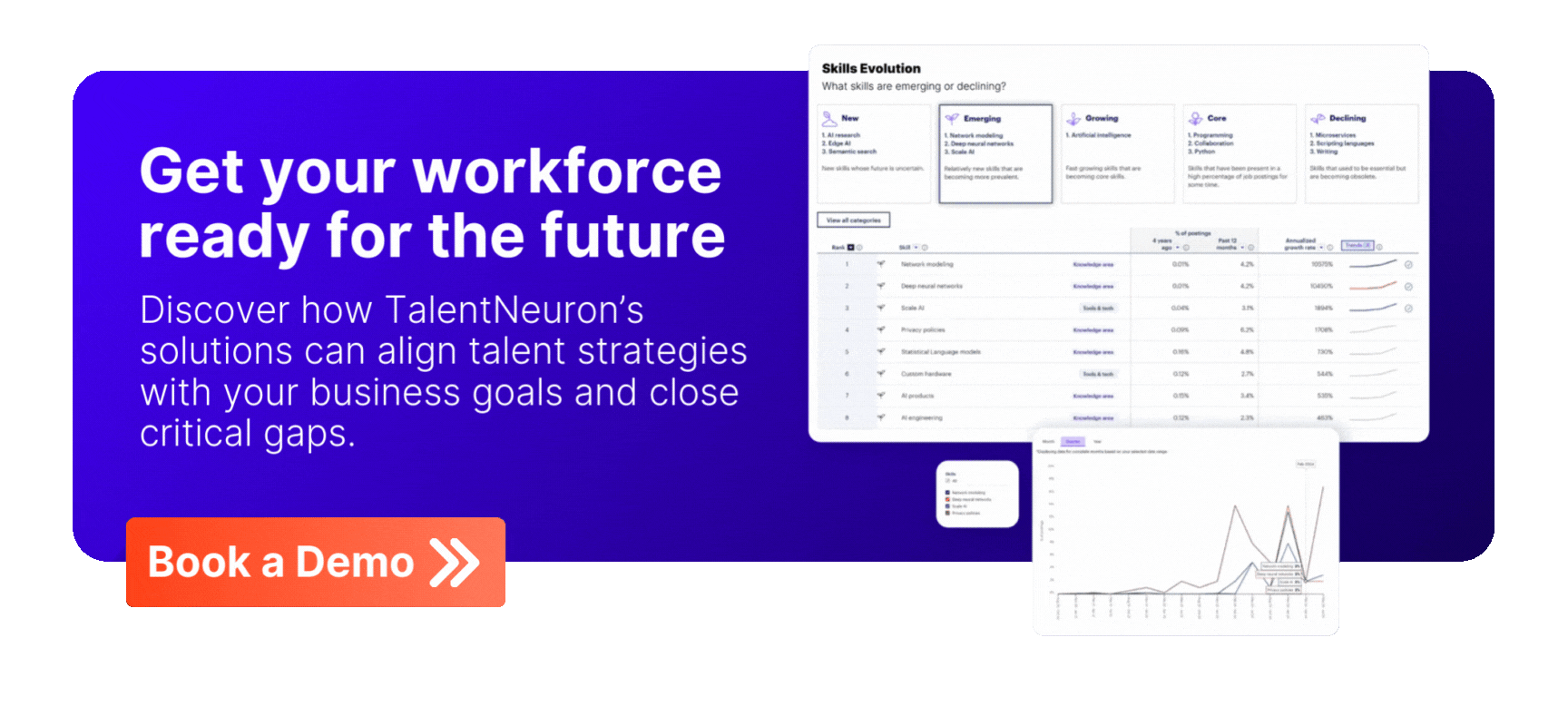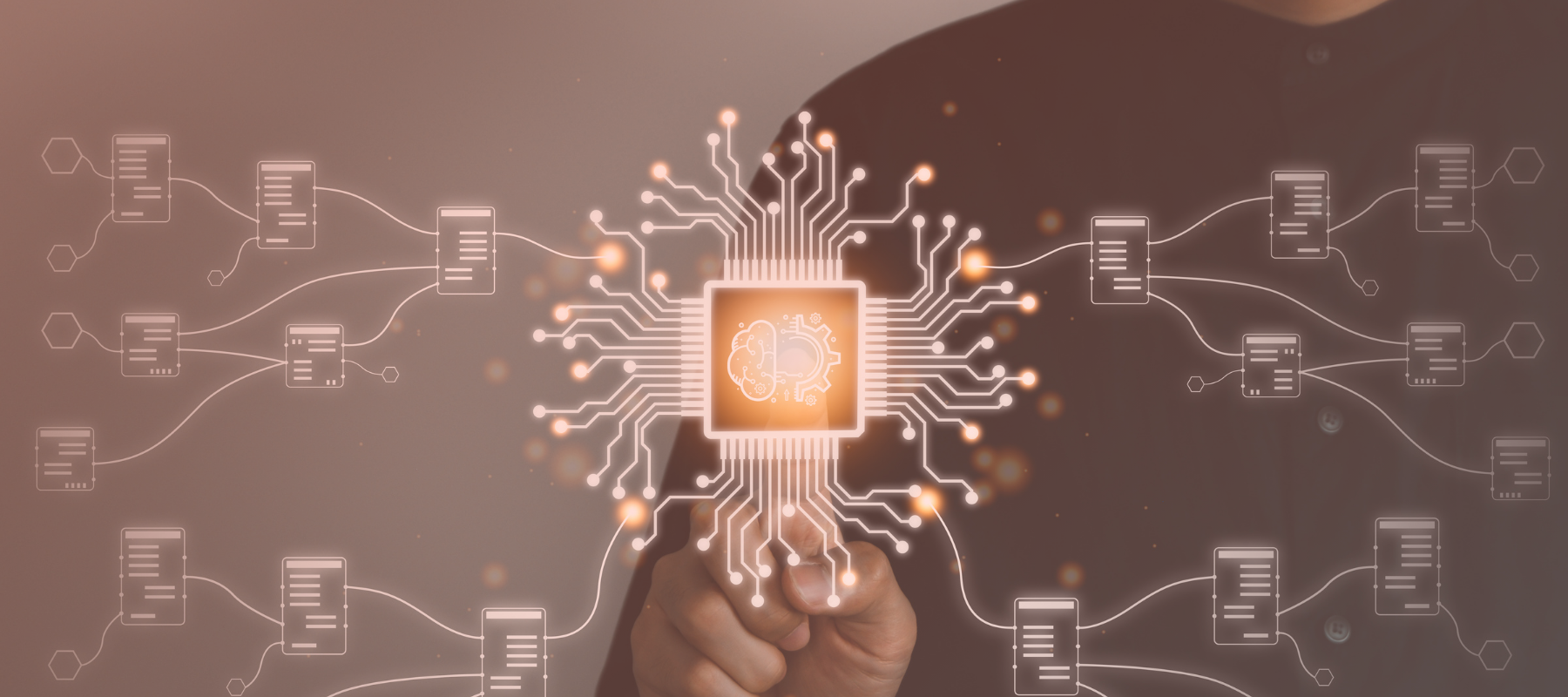The Metaverse and HR: Reshaping the Future of Work
.svg)
The Metaverse and HR: Reshaping the Future of Work
How will the metaverse impact HR? Here are its benefits, challenges, and potential uses

In today's tech-driven labor market, businesses are constantly exploring innovative tools to enhance workplace efficiency. But beyond the recent surge of generative AI-powered platforms including ChatGPT and Midjourney, the metaverse — a broad term for virtual and augmented reality (VR/AR) — is emerging as a transformative technology with significant implications for human resources.
This guide delves into the potential of the metaverse in HR, exploring its impact on hiring, onboarding, employee engagement, and the future of work.

How the Metaverse and HR Intersect
The metaverse offers exciting new avenues for businesses to streamline processes and enhance employee experiences. But in terms of HR, the strategic integration of virtual reality, augmented reality, and other immersive technologies into core functions creates rich, interactive digital environments for work, learning, and connection.
The metaverse is projected to reach 2.6 billion users and a market value of more than $500 billion by 2030, according to Statista Market Insights.
Industry leaders Microsoft and Meta, for example, developed immersive virtual spaces for collaboration with Mesh for Teams and Horizon Workrooms, respectively.
Research also highlights the effectiveness of immersive learning. VR-trained employees were roughly four times more focused, connected to content, and faster at completing their training compared to traditional methods, according to a 2022 study by PwC.
58% of global companies with metaverse plans have already deployed or tested at least one use case in their organization, according to a 2023 metaverse study by EY in partnership with Nokia.
Early metaverse adopters have included Accenture, which has used VR and more to onboard thousands of employees; Fidelity Investments, which has experimented with metaverse recruitment events; and KPMG, which invested in training employees in the metaverse. practical applications of the metaverse for HR.
Key Benefits of Integrating the Metaverse into HR Practices
Staying ahead of workplace trends like the metaverse is crucial for HR professionals. Here's how the metaverse can benefit HR:
- Enhanced remote collaboration: The metaverse facilitates immersive virtual environments that mimic physical interactions, improving remote team collaboration and fostering a stronger sense of presence and connection.
- Transformative talent acquisition and virtual onboarding: Virtual reality job previews and interactive onboarding programs can provide candidates and new hires with a deeper understanding of company culture, systems, and roles.
- Boosting employee engagement and well-being in virtual workspaces: The metaverse enables the creation of virtual social spaces and experiences that enhance employee engagement, build connections, and support employee well-being in remote and hybrid work environments.
- Revolutionizing learning and development with VR training: Immersive VR training simulations and virtual learning environments offer engaging and memorable ways for employees to acquire new skills and knowledge, fostering continuous learning and professional networking.
- Preparing for the future of work and digital transformation: The metaverse represents a potential future where work and communication are seamlessly integrated into virtual spaces. HR plays a vital role in understanding and adapting to these shifts, including their impact on organizational structures and employee roles.
The metaverse is rapidly evolving, presenting significant opportunities for HR to innovate and enhance the employee life cycle.
"There’s going to be a lot more technological interface, whether we’re talking about machine learning, artificial intelligence, chatbots, metaverse, or virtual reality. All of this is going to come in and change the way we experience the world and prepare leaders for tomorrow."
Mark T. Fernandes, Senior Vice President of Human Resources at Kotak Life Insurance
Navigating the Challenges of Metaverse Implementation in HR
While the metaverse offers numerous advantages for HR, several challenges need careful consideration:
- Technical implementation: Deploying metaverse solutions requires specialized technical expertise and can involve significant costs. Connectivity and bandwidth limitations can also affect user experience.
- Ensuring accessibility: Not all employees have the necessary VR headsets or compatible devices, potentially creating accessibility barriers.
- Addressing security and data privacy: Robust security protocols are crucial to protect sensitive employee data within metaverse HR platforms. Clear guidelines on data usage and privacy are essential.
- Limitations for certain roles: Some jobs require a physical presence or specialized equipment that cannot be effectively replicated in a virtual environment.
- Managing cultural resistance to virtual work: Some employees and managers might prefer traditional in-office interactions, requiring change management strategies.
Addressing these challenges proactively is vital for successful metaverse integration in HR.

Real-World Applications: How HR is Using the Metaverse
The metaverse is already demonstrating practical applications across various industries. For HR in particular, this includes:
- Revolutionizing virtual recruiting: VR job simulations and immersive virtual interviews can enhance candidate engagement and provide a more realistic job preview, leading to better hiring decisions.
- Enhancing virtual onboarding experiences: Interactive virtual office tours and metaverse onboarding programs allow new hires to connect with colleagues and understand the company culture in an engaging way, even in remote settings.
- Improving performance management through virtual assessments: The metaverse can facilitate objective and data-driven employee performance assessments through realistic virtual simulations that evaluate skills and knowledge.
- Transforming succession planning with immersive knowledge transfer: Virtual reality environments can be used to assess high-potential employees and facilitate engaging knowledge transfer from experienced leaders, ensuring organizational continuity.
Embracing the Potential of the Metaverse in HR
The integration of the metaverse into HR offers a powerful toolkit for enhancing remote work, talent acquisition, employee engagement, and learning and development. While challenges related to technology, accessibility, and security need to be addressed, the potential to transform the employee experience is undeniable.
Organizations that strategically explore relevant metaverse use cases in HR and proactively address the associated limitations will be well-positioned to leverage this emerging technology for a more engaging, efficient, and future-forward HR function.





